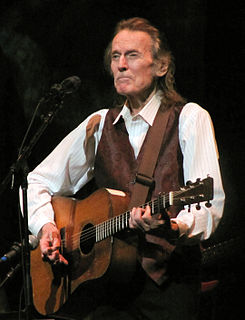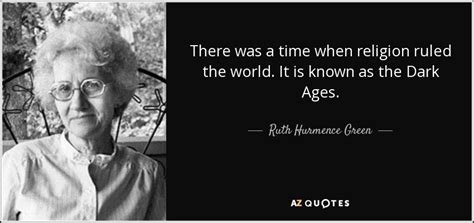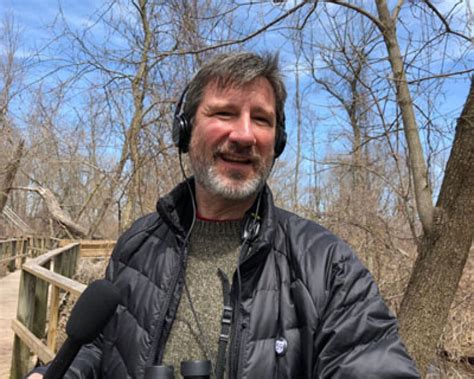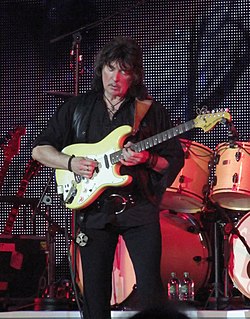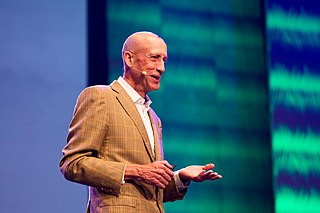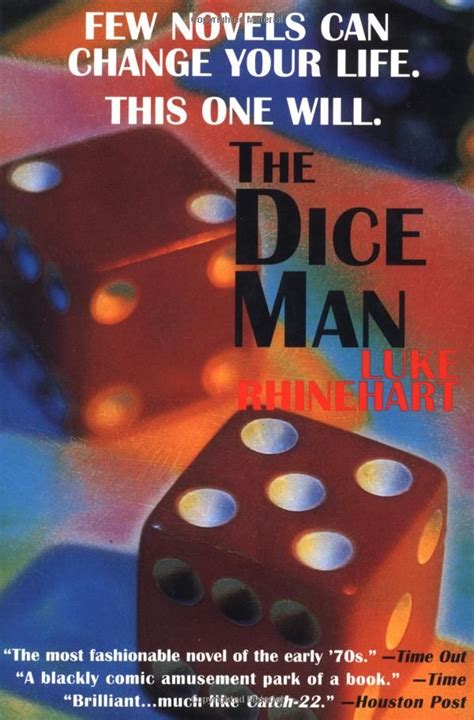Top 326 Albert Quotes & Sayings - Page 6
Explore popular Albert quotes.
Last updated on November 12, 2024.
I never actually sexually attacked anybody. But I'm a writer, too, and I was always trying to figure out a way to recreate the experience of being this Albert Camus, Stranger-like solitary protagonist character without incriminating myself in any way, like, "Oh, what a perv!" I want to reach out to anybody out there who may have been riding on the train one time when things in their life were completely falling apart and saw a girl's legs in a skirt and it's the last bit of goodness that you can see.
[Albert Camus]didn't have much hope that things would work out, but he wanted them to. Algeria had reached such a degree of violence that once such violence is created there's no more room for reflection. And there's no mediating position. If you look at Bosnia today, the Croats, Bosnians and Serbs, they've all created so much horror that one starts to wonder how these peoples can live together, after having done what they have. Already the violence has reached such a degree that everybody is living in hate, there's no possibility of reflection, no mediating position.
Throughout his life, Albert Einstein would retain the intuition and the awe of a child. He never lost his sense of wonder at the magic of nature's phenomena-magnetic fields, gravity, inertia, acceleration, light beams-which grown-ups find so commonplace. He retained the ability to hold two thoughts in his mind simultaneously, to be puzzled when they conflicted, and to marvel when he could smell an underlying unity. "People like you and me never grow old," he wrote a friend later in life. "We never cease to stand like curious children before the great mystery into which we were born.
I see myself, in terms of the question of capitalism, as I would support democratic socialism over a capitalist system, because any approach... or participatory economics, which is another great model that people like Michael Albert are putting out there... any system that encourages us to think about interdependency, and to be able to use the world's resources in a wiser way, for the good of the whole, would be better for the world than capitalism.
I went on tours with [Bob] Dylan - the big one was in 1975 and called Roaring Thunder Review. I knew him well because I met him around the time he did his second album, in 1963. He recorded one of my songs called Shadows. In the 1970s, it was suggested that we do a duet, because we had the same manager, Albert Grossman, who also managed Odetta and Peter, Paul and Mary. Dylan and I respected what each other did, but I just decided not to do it.
Any profession should have norms around the issue you raise. And, in the words of the great economic thinker Albert Hirschman, we all owe a measure of loyalty to professional norms. But when the norms seem unhelpful or unproductive, one needs to speak up - to activate voice. And in the extreme, if the profession and one's colleagues seem estranged from a thoughtfully selected course of action, you need to consider the possibility of exit. Of course, if you knowingly violate norms or laws, you need to be prepared to face the consequences - or to lead a revolution!
One of the most common words in the invalidating, self-blaming stories we believe about ourselves or our situations is the word "should." The psychologist Albert Ellis has coined the phrase "Stop shoulding on yourself." When you tell yourself that you should feel or be another way, you are likely to feel bad about yourself. As an alternative, try telling yourself that it is okay to feel or be the way you are, even though you have some idea that you should feel or be different.
Albert Camus wrote that the only serious question is whether to kill yourself or not. Tom Robbins wrote that the only serious question is whether time has a beginning and an end. Camus clearly got up on the wrong side of bed, and Robbins must have forgotten to set the alarm. There is only one serious question. And that is: Who knows how to make love stay? Answer me that and I will tell you whether or not to kill yourself.
e idea of a personal God is quite alien to me and seems even naive. However, I am also not a "Freethinker" in the usual sense of the word because I find that this is in the main an attitude nourished exclusively by an opposition against naive superstition. My feeling is insofar religious as I am imbued with the consciousness of the insuffiency of the human mind to understand deeply the harmony of the Universe which we try to formulate as "laws of nature." It is this consciousness and humility I miss in the Freethinker mentality. Sincerely yours, Albert Einstein.
Tom [Courtenay] and Albert Finney met Ron Harwood on the dresser, so that's how it started. It's a wonderful documentary. It's called Tosca's Kiss and Mr Hardwood told me about it when I asked him what the genesis was. It was made in 1983 and Verdi, who was rich and successful, toward the end of his life decided to build a mansion for himself in Milan, where he lived, and he stipulated that when he died opera singers and musicians - because he knew so many who were no longer playing at the Scala and some were poor - could live there.
I am pleased as punch no longer to believe in a god who declares reason a sin, who will not choose many noble and great and wise things but has chosen the base things of the world, the foolish things, the weak things and the things which are not. A god who can choose his companions in eternity and prefers Jerry Falwell and Tammy Bakker over Albert Einstein and Marie Curie. I am no longer a fool for Christ's sake. And I have no more desire to be a sheep than to be a fool. It is possible to pull out justification for imposing your will on others, simply by calling your will God's will.
Drone strikes, Albert Camus would argue, are not just meant to kill. They are programmed to terrorize. In this regard, whether the missile strikes its intended target or incinerates a goat-herder and his flock is incidental. In fact, the occasional killing of civilians may well be a desired outcome since collateral deaths intensify the fear. This is punishment by example, not for any particular crime or impending threat, but merely because of who you are, where you live, what you might believe. These new circuitries of death are meant to humiliate, subdue and dehumanize.
Most guitar players get a name because the band that they're in has become popular. That doesn't mean that they're particularly good, whereas conversely, you've got people like Albert Lee, an incredible player, one of my favourites who's not in a famous band, so he doesn't get into the popularity polls. I have to laugh at some of the people that do get into the popularity polls - some of them are so bad, but they're in a band that's at the top of the hit parade. I think people mix that up.
To be loved by someone is to realize how much they share the same needs that lie at the heart of our own attraction to them. Albert Camus suggested that we fall in love with people because, from the outside, they look so whole, physically whole and emotionally 'together' - when subjectively we feel dispersed and confused. We would not love if there were no lack within us, but we are offended by the discovery of a similar lack in the other. Expecting to find the answer, we find only the duplicate of our own problem.
I wrote 'Turn Your Radio On' in 1937, and it was published in 1938. At this time radio was relatively new to the rural people, especially gospel music programs. I had become alert to the necessity of creating song titles, themes, and plots, and frequently people would call me and say, 'Turn your radio on, Albert, they're singing one of your songs on such-and-such a station.' It finally dawned on me to use their quote, 'Turn your radio on,' as a theme for a religious originated song, and this was the beginning of 'Turn Your Radio On' as we know it.
My dear, In the midst of hate, I found there was, within me, an invincible love. In the midst of tears, I found there was, within me, an invincible smile. In the midst of chaos, I found there was, within me, an invincible calm. I realized, through it all, that… In the midst of winter, I found there was, within me, an invincible summer. And that makes me happy. For it says that no matter how hard the world pushes against me, within me, there’s something stronger – something better, pushing right back. Truly yours, Albert Camus
Let's try to find ten good things to say about Albert Belle:
10. So far as we know, he's never killed anyone.
9. He is handsome, and built like a God.
8. He played every game.
7. He has never appeared on the Jerry Springer Show.
6. He was an underrated base runner who was rarely caught stealing.
5. He hasn't been arrested in several years.
4. He is very bright.
3. He works hard.
2. He has never spoken favorably about Adolf Hitler, Saddam Hussein, or any other foreign madman.
1. The man could hit.
Most of us agree that the United Nations is the vanguard of a foreign invasion and must be driven from our shores. Liberalism - Progressivism - all forms of left wing collectivism, are equally alien to the Founders' America and must be extirpated, root and branch, laughter and derision being the most effective weapons. Look at the way they have reduced Hillary Clinton to an insignificant greasy spot on the pages of history, turned Albert Gore into an object of merriment, and are accomplishing the same for Barry and Micky Obama.
Under the discipline of unity, knowledge and morality come together. No longer can we have that paltry 'objective' knowledge so prized by the academic specialists. To know anything at all becomes a moral predicament. Aware that there is no such thing as a specialized effect, one becomes responsible for judgments as well as facts. Aware that as an agricultural scientist he had 'one great subject,' Sir Albert Howard could no longer ask, What can I do with what I know? without at the same time asking, How can I be responsible for what I know?
I am Plato's Republic. Mr. Simmons is Marcus. I want you to meet Jonathan Swift, the author of that evil political book, Gulliver's Travels! And this other fellow is Charles Darwin, and-this one is Schopenhauer, and this one is Einstein, and this one here at my elbow is Mr. Albert Schweitzer, a very kind philosopher indeed. Here we all are, Montag. Aristophanes and Mahatma Gandhi and Gautama Buddha and Confucius and Thomas Love Peacock and Thomas Jefferson and Mr. Lincoln, if you please. We are also Matthew, Mark, Luke, and John.
You simply cannot give to the world all that you have to give to the world if you do not remain true to your own "selfish" desires. You have a unique set of precious values that can only be fulfilled by pursuing what drives you the most: your passions and dreams. Could Thomas Edison have tended to the downtrodden as Mother Teresa did? Could Albert Einstein have preached salvation as Martin Luther King Jr. did? Could Abraham Lincoln have built cars like Henry Ford? Always, the masses benefit from the individuals who insist on marching to the beat of their own drummer.
To change man, the audience by which he judges himself must be changed. A man is defined by his audience: by the people, institutions, authors, magazines, movie heroes, philosophers by whom he pictures himself being cheered and booed. Major psychological disturbances, 'identity crises', are caused when an individual begins to change the audience for whom he plays: from parents to peers; from peers to the works of Albert Camus; from the Bible to Hugh Hefner.
About six years ago, Life magazine ran an article on the historicity of Jesus and I was floored to find that they conceded the only evidence we have for his existence is in the Gospels. But don't take Life's word for it. In his book The Quest of the Historical Jesus, the most definitive study that's ever been done on the subject, Albert Schweitzer admitted that there isn't a shred of conclusive proof that Christ ever lived, let alone was the son of God. He concludes that one must therefore accept both on faith.
During the '80s, those you would call the young philosophers of France, such as Bernard-Henri Lévy and [André ] Gluxman, pointed out that Camus had said things no one wanted to hear in the political arena. They said it was [Albert] Camus who was right, not those who had slid under the influence of Sartre, that is to say an unconditional devotion to Communism as seen in the Soviet Union. And ever since then the evaluation of Camus has continued to modify up until today
My dearest dearest dear Albert sat on a footstool by my side and his excessive love and affection gave me feelings of heavenly love and happiness I never could have hoped to have felt before! He clasped me in his arms and we kissed each other again and again! His beauty... his sweetness and gentleness - really how can I ever be thankful enough to have such a husband! to be called names of tenderness, I have never yet heard used to me before - was bliss beyond belief! Oh! This was the happiest day of my life! May God help me to do my duty as I ought and be worthy of such blessings.
Love is very important in The First Man, in that [Albert] Camus loves these things he never chose, he loves his childhood experience in a very real way. Their poverty meant that there was nothing else they could think about but what they would eat, how they would clothe themselves. There's just no room for other things in his family. It's difficult for others to imagine the position in which he found himself. There is no imaginary existence in their lives.




